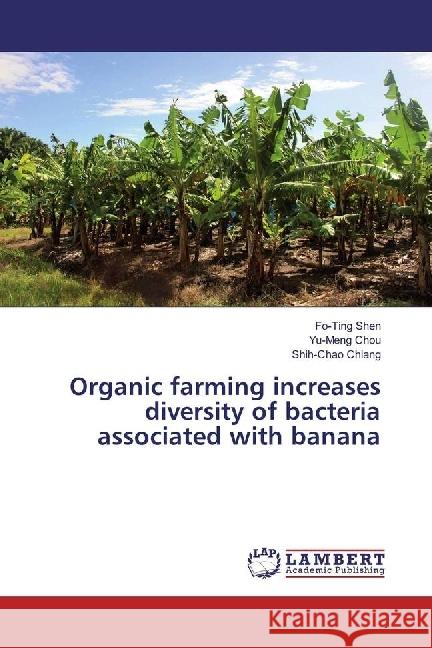Organic farming increases diversity of bacteria associated with banana » książka
Organic farming increases diversity of bacteria associated with banana
ISBN-13: 9783330028104 / Angielski / Miękka / 2017 / 76 str.
Sustainable farming relies on comprehensively agricultural manipulations which utilize fertilizers and pesticides in a proper way to increase crop productivity. Studies on soil microbial communities which have profound influences on nutrient cycling under different agricultural management regimes in long-term trials will be valuable. This book demonstrated a three-year field study of functional diversity and dominant populations of bacteria in banana plantation soils after long-term organic and conventional farming. Soil pH, organic matter content, water content and viable numbers of four bacterial groups positively correlated with organic farming. Besides, organic management practices brought higher functional diversity of fast-growing heterotrophs, and distinct carbon source utilization patterns between organic and conventional farming soils were demonstrated. Associations between metabolic activity of fast-growing heterotrophs and distribution of copiotrophic or oligotrophic populations were addressed here for the first time. This might provide basis for soil microbiologist or ecologist to evaluate diversity or specific groups of bacteria in the maintenance of soil health.











